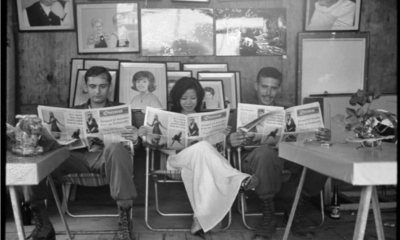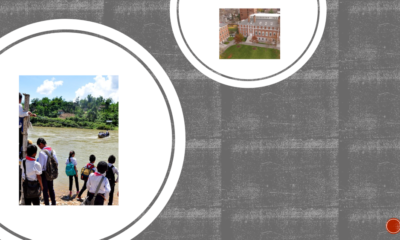How foreign government and non-governmental agencies have promoted political rights in Vietnam (Part 1, Part 2. Part 3)
Seohee Kwak
3. Conclusion
Foreign actors have different backgrounds and approaches, and each plays a very limited role in promoting greater political rights and freedom for the Vietnamese people. From the thematic analysis, I found that most engagement of foreign actors followed two patterns: (i) non-confrontational normative dissemination and (ii) informal support to social organizations. Regarding the first, foreign actors attached importance to normative dissemination and availed of financial and technical support to raise awareness among state actors. This path does not yield quick outcomes, but it is widely regarded as a safer option to preserve relationships and thus continue working towards the goal of nurturing enabling conditions for greater political freedom in the long run. Foreign actors’ commitment to disseminating democratic norms stems from their conviction that state actors and citizens will become increasingly comfortable with the values of political rights and freedom and thus recognize the need to adopt democratic norms themselves. Foreign actors hardly deviated from the given political system, and their status and role conceptually and empirically has boiled down to a low-key agent of normative promotion.
Regarding the second pattern, foreign actors formally and informally supported Vietnamese social organizations and activists. However, such support has generally reflected foreign actors’ expectation of a contribution to the development of a Vietnamese civil society. Most, if not all, foreign actors made a pragmatic compromise between their normative ambitions and the Vietnamese political realities, and adapted to the given formal political institutions. Rather than targeting the general Vietnamese citizenry, the foreign actors in this analysis tended to target social organizations to help them play a more active and independent role in civil society, to help them effectively raise voices for a common cause or engage in policy change. In this respect, foreign actors provided informal support to Vietnamese social organizations working on advocacy, campaigning and research committed to promoting greater political rights and freedom in the expectation of civil society development.
The research question posed in this paper was how foreign actors have engaged in promoting better conditions for political action in Vietnam. Overall, I see little chance of institutional changes led by foreign actors anytime soon, considering the strategic positioning observed among many actors, which sought to avoid confrontations with the party-state and focused on policy advocacy and normative promotion. At most, foreign actors can be characterized as low-key mediators in promoting greater political rights and freedom. Nevertheless, their commitment to normative promotion cannot be overlooked and their influence on the formal political institutions remains to be seen in the longer term.
References
Abuom, A., K. Alemu, I. Evensmo, E. Hafild, S. Kruse and R.C. Riddell (2012) ‘Tracking Impact: An Exploratory Study of the Wider Effects of Norwegian Civil Society Support to Countries in the South’. Oslo: Norwegian Agency for Development Cooperation. Accessed 17 October 2021
<https://www.norad.no/en/toolspublications/publications/2012/tracking-impact-an-exploratory-study-of-the-wider-effects-of-norwegian-civil-society-support-to-countries-in-the-south/>.
European Commission (2019) ‘Information sessions: Call for Proposals, European Instrument for Democracy and Human Rights (EIDHR), Country-Based Support Scheme for Vietnam 2018-2020’. Accessed 20 April 2021
<https://webgate.ec.europa.eu/europeaid/online-services/index.cfm?ADSSChck=1575279816235&do=publi.detPUB&searchtype=QS&nbPubliList=15&orderbyad=Desc&page=1&orderby=upd&aoref=162326&userlanguage=en>.
Forsberg, L.T. and A. Kokko (2008) ‘From Growth to Poverty Reduction: The Framework for Development’. Country Economic Report 2008:2. Stockholm: Swedish International Development Cooperation Agency (Sida). Accessed 15 May 2021
< https://www.sida.se/publikationer/from-growth-to-poverty-reduction-the-framework-for-development-cooperation-in-vietnam>.
Grimm, S. and J. Leininger (2012) ‘Not All Good Things Go Together: Conflicting Objectives in Democracy Promotion’, Democratization 19(3): 391-414.
McFaul, M. (2004) ‘Democracy Promotion as a World Value’, Washington Quarterly 28(1): 147-63.
Norwegian Agency for Development Cooperation (2007) ‘Civil Society and People’s Participation, Final Evaluation of the Grassroots Democracy Project,’ Accessed 26 April 2021
<https://www.norad.no/en/toolspublications/publications/ngo-evaluations/2009/civil-society-and-peoples-participation-final-evaluation-of-the-grassroots-democracy-project2/>.
OECD Statistics (n.d.) ‘Creditor Reporting System (CRS)’. Accessed 21 March 2021
<https://stats.oecd.org/Index.aspx?DataSetCode=crs1>.
Salemink, O. (2006) ‘Translating, Interpreting and Practicing Civil Society in Vietnam: A Tale of Calculated Misunderstandings’, in D. Lewis and D. Mosse (eds) Development Brokers and Translators: The Ethnography of Aid and Agencies, pp. 101-126. Bloomfield, CT: Kumarian Press.
The Governments of Vietnam and Denmark (2011) ‘Good Governance and Public Administration Reform Programme Phase II: 2012-15’. Accessed 24 February 2021 <https://vietnam.um.dk>.
United Nations Democracy Fund (2014) ‘Civil Society Empowerment in Advocacy and Policy Development in Vietnam’, UN Democracy Fund Evaluation Report No. UDF-VIE-10-392–C. Belgium: Transtec. Accessed 25 April 2021
<https://www.un.org/democracyfund/sites/www.un.org.democracyfund/files/vietnam_-_udf-10-392-vie_-_evaluation_report.pdf>.
United States Department of State (2019) ‘View Grant Opportunity: SFOP0005600 DRL FY18 Strengthening and Supporting Civil Society in Vietnam‘, Accessed 29 April 2021
<https://www.grants.gov/web/grants/view-opportunity.html?oppId=313558>.
Thuy Nguyen; Exploiting Ideology and Making Higher Education Serve Vietnam’s Authoritarian Regime. Communist and Post-Communist Studies 1
December 2022; 55 (4): 83–104.
Vu, Tuong and Nguyen, Thuy. “Chapter 1 “Doi Moi” but Not “Doi Mau”: Vietnam’s Red Crony Capitalism in Historical Perspective”. The Dragon’s Underbelly: Dynamics and Dilemmas in Vietnam’s Economy and Politics, edited by Nhu Truong and Vu Tuong, Singapore: ISEAS Publishing, 2022, pp. 25-50.
Appendix 1. List of the interviewees
| No. |
Nationality |
Affiliation |
Position |
| 1 |
V |
External |
Senior Officer |
| 2 |
V |
Social organization |
Vice Director |
| 3 |
V |
Non-governmental |
Associate Professor |
| 4 |
F |
INGO |
Coordinator |
| 5 |
F |
External |
Human rights specialist |
| 6 |
V |
Non-governmental |
Deputy Chairman |
| 7 |
V |
Non-governmental |
Lecturer |
| 8 |
V |
External |
Policy Analyst |
| 9 |
F |
External |
Representative |
| 10 |
F |
INGO |
International Senior Advisor |
| 11 |
F |
External |
Head of Development |
| 12 |
V |
External |
Program manager |
| 13 |
V |
Research institute |
Project manager |
| 14 |
V |
Research institute |
Project manager |
| 15 |
V |
Non-governmental |
Vice Director |
| 16 |
F |
INGO |
Representative |
| 17 |
V |
External |
Project manager |
| 18 |
F |
External |
Head of Cooperation |
| 19 |
F |
External |
Senior Development Officer |
| 20 |
F |
INGO |
Director |
| 21 |
F |
INGO |
Director |
| 22 |
V |
External |
Program officer |
| 23 |
V |
Governmental |
Director General |
| 24 |
V |
Social organization |
Director |
| 25 |
F |
Research institute |
Chief researcher |
| 26 |
V |
Governmental |
Retired official |
| 27 |
F |
External |
Safeguards Specialist (Resettlement) |
| 28 |
F |
External |
Director |
| 29 |
V |
Central ministry |
Director general |
| 30 |
V |
External |
Individual consultant |
| 31 |
V |
INGO |
Program officer |
| 32 |
F |
INGO |
Program Manager |
| 33 |
V |
INGO |
Specialist in civil society and advocacy |
| 34 |
V |
Non-governmental |
Deputy Director |
| 35 |
F |
External |
Vice Country Director |
| 36 |
V |
External |
Independent consultant |
| 37 |
V |
INGO |
Governance Program Assistant |
| 38 |
V |
Non-governmental |
Officer |
| 39 |
F |
External |
Ambassador |
| 40 |
V |
Mass organization |
Vice director of a department |
| 41 |
V |
Mass organization |
Vice director of a department |
| 42 |
V |
External development agency |
Program Officer |
| 43 |
V |
External development agency |
Senior Officer |
| 44 |
V |
INGO |
Northern Program Coordinator |
| 45 |
V |
Social organization network |
Coordinator |
| 46 |
V |
Non-governmental |
Deputy Director |
| 47 |
V |
Governmental |
Deputy Director General for International Cooperation |
| 48 |
F |
External |
Chief Technical Coordinator |
| 49 |
F |
External |
Vice Country Director |
| 50 |
V |
Governmental |
Program Manager |
Notes.
1. V: Vietnamese / F: Foreigner.
2. To maintain anonymity and confidentiality, job titles of some interviewees were simplified when they may hint who (s)he is.
Appendix 2. Projects of foreign actors for thematic analysis
| No. |
Protect title |
Main implementing/
funding partner |
Period |
| 1 |
Advocacy Coalitions Support Program |
Oxfam/
The UK Department for International Development (DFID) |
2012-2016 |
| 2 |
Capacity Building for the Implementation of International Human Rights Treaties in Viet Nam |
Ministry of Foreign Affairs/
UNDP |
2008-2011 |
| 3 |
Capacity Building for Viet Nam Union of Science and Technology Associations (VUSTA) |
VUSTA/
UNDP |
2008-2011 |
| 4 |
Civil Society and Grassroots Participation Project
|
Plan Vietnam-Plan Norway/
Norwegian Agency for Development Cooperation (NORAD) |
2003-2007 |
| 5 |
Civil society program
(Not a project title but refers to its overall support program) |
Vietnamese CSOs/
Asia Foundation
|
2009-2011 |
| 6 |
Civil Society Empowerment in Advocacy and Policy Development in Vietnam |
Research Center for Management and Sustainable Development (MSD) and 18 partner organizations/
UNDEF |
2012-2014 |
| 7 |
The Vietnam Civil Society Facility |
Irish Aid |
2007-2016 |
| 8 |
Enhancing CSOs’ Contribution to Governance and Development Process in Vietnam |
The European Commission |
2019-2020 |
| 9 |
European Instrument for Democracy and Human Rights (EIDHR)
Country-Based Support Scheme (CBSS) for Vietnam |
The European Commission |
2007
2008
2009
2011
2014-2015
2016-2017
2018-2019 |
| 10 |
European Initiative for Democracy and Human Rights (EIDHR)
Micro-projects (MP) in Vietnam |
The European Commission |
2005 |
| 11 |
Good Governance and Public Administration Reform Program-Phase I (GOPA I) |
Government of Vietnam/
co‐funded by the Danish International Development Assistance (DANIDA) and the United Kingdom Department of International Development (DFID). |
2008-2012 |
| 12 |
Good Governance and Public Administration Reform Program-Phase II (GOPA)* |
Government of Vietnam/
DANIDA and DFID. |
2012-2015 |
| 13 |
Justice Partnership Program |
Denmark, European Union, and Sweden |
2010-2015 |
| 14 |
MARD – Macro Management
Introduction |
Ministry of Agriculture and Rural Development/ UNDP
|
2007-2012 |
| 15 |
Non-State Actors in Development in Vietnam |
The European Union |
2008-2009
2012-2013 |
| 16 |
Project for improving the transparency and the quality of adjudication in the Viet Nam People’s Court |
Korea International Cooperation Agency |
2019-2022 |
| 17 |
Promoting Active Participation of Civil Society in Environmental Governance |
Ho Chi Minh National Academy of Politics and Public Administration (HCMPA) and other organizations/
International Union for Conservation of Nature (IUCN), The United Nations Democracy Fund (UNDEF) |
2010-2012 |
| 18 |
Public Participation and Accountability Facilitation Fund (PARAFF)*
(It is part of GOPA, project no. 12) |
Government of Vietnam/
co-funded by the Danish International Development Assistance (DANIDA) and the UK Department
for International Development (DFID). |
2012-2015 |
| 19 |
Strengthening and Supporting Civil Society in Vietnam |
United States Department of State |
2019 |
| 20 |
Support for Effective Policy Making through the Development of Scientific Evidence Based Research |
Vietnam Academy of Social Sciences/
UNDP |
2008-2011 |
Notes.
1. The project period for each project may have different fiscal year criteria. This table is based on the collected data. Also, I indicate the period based on the information in the collected documents. Therefore, actual project periods may differ.
2. EIDHR consists of micro-project grant programs in four campaign sectors, and Vietnam was selected for Campaign 2 and 4, respectively, ‘fostering a culture of human rights’ and ‘advancing equality, tolerance and peace’.

 Politics & Economy4 years ago
Politics & Economy4 years ago
 Politics & Economy1 year ago
Politics & Economy1 year ago
 ARCHIVES5 years ago
ARCHIVES5 years ago
 Society & Culture5 years ago
Society & Culture5 years ago
 After 19751 year ago
After 19751 year ago
 Politics & Economy4 years ago
Politics & Economy4 years ago
 Politics & Economy5 years ago
Politics & Economy5 years ago
 Politics & Economy4 years ago
Politics & Economy4 years ago







